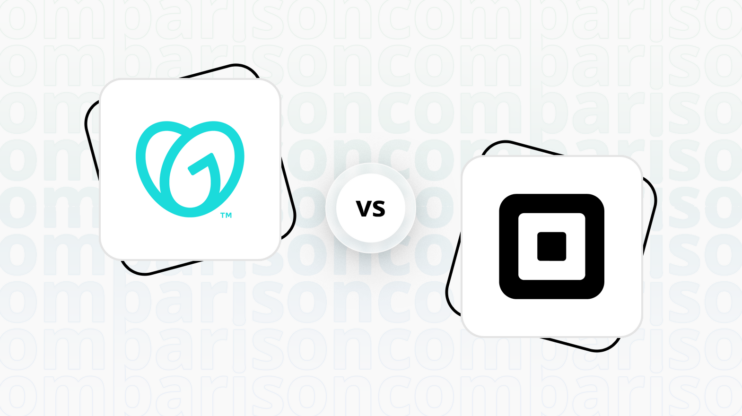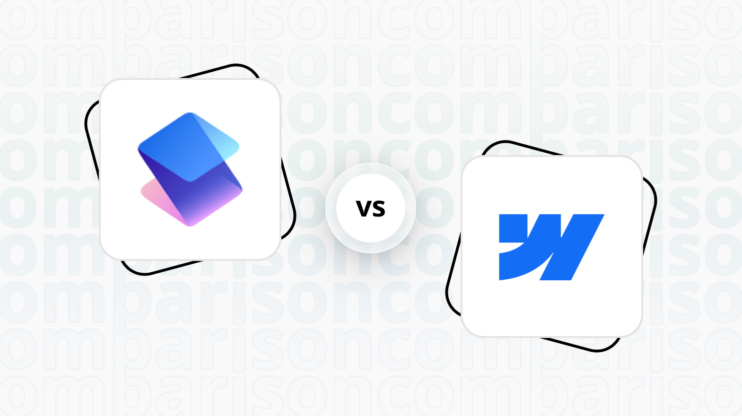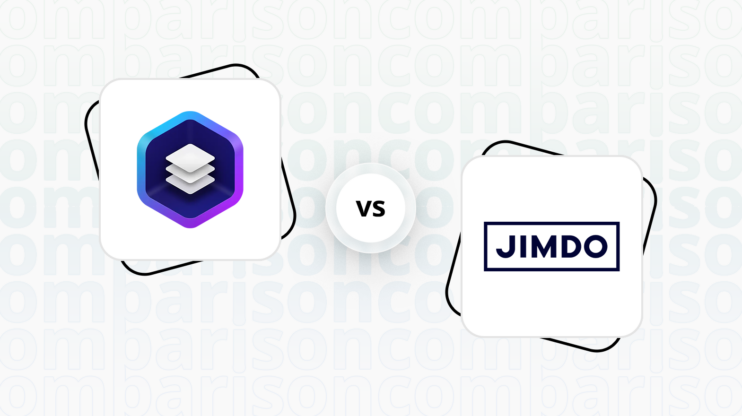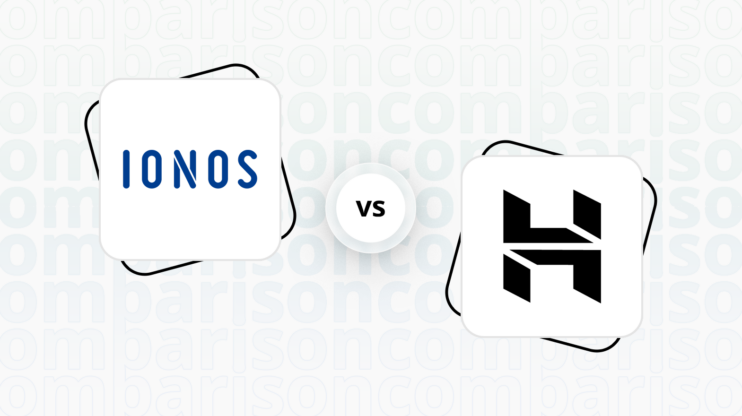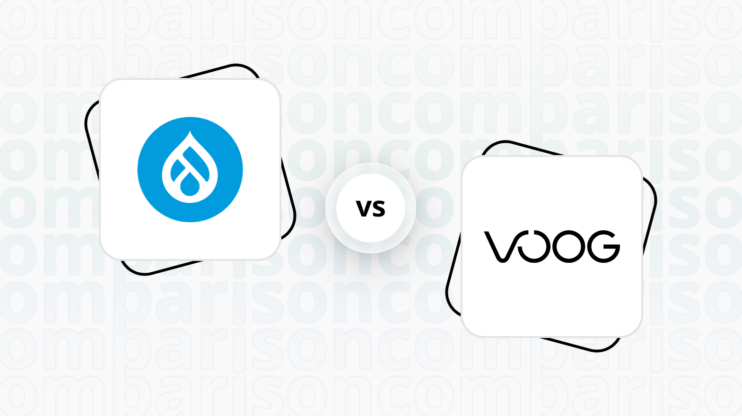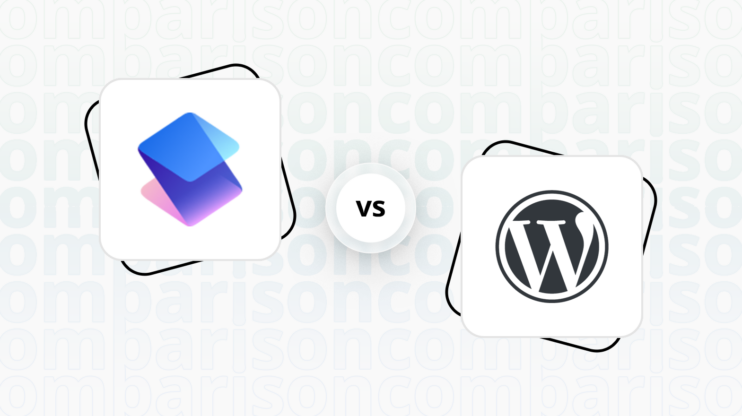Final verdict
Adobe Commerce(ex Magento) and Webnode both offer unique strengths, catering to different user needs and preferences.
-
Adobe Commerce(ex Magento) (Overall Grade: 6.9/10)
is a powerful and versatile platform ideal for businesses looking for extensive customization and scalability. It excels in ecommerce features, security, and marketing tools, making it suitable for both B2B and B2C businesses. However, it comes with a steeper learning curve and higher costs, which may not be ideal for beginners or small businesses. -
Webnode (Overall Grade: 6.5/10)
is a user-friendly website builder perfect for beginners and small businesses. It offers a straightforward drag-and-drop interface, a wide range of customizable templates, and affordable pricing plans. While it may lack some advanced ecommerce and customization features compared to Adobe Commerce(ex Magento), it provides a quick and easy way to create professional-looking websites without technical expertise.

|

|
|
|---|---|---|
|
Design functionalities & templates |
6.7 |
7.1 |
|
Ease of use |
5.4 |
8.0 |
|
Ecommerce |
9.4 |
6.3 |
|
Website Editors |
7.8 |
7.3 |
|
Product testing options |
3.9 |
5.3 |
|
Price |
5.8 |
7.7 |
|
Hosting quality |
8.1 |
6.3 |
|
Website speed optimization |
6.6 |
6.1 |
|
Plugins and integrations |
9.1 |
6.8 |
|
Marketing features |
8.1 |
5.5 |
|
Customer support |
8.3 |
5.3 |
|
Security |
8.4 |
7.7 |
|
AI capabilities |
7.7 |
5.3 |
|
User Management |
8.0 |
6.9 |
| Overall |
6.9 |
6.5 |
Best for ecommerce
 9.4
9.4
 6.3
6.3
Verdict
: Adobe Commerce(ex Magento) is a powerhouse for large-scale ecommerce operations, while Webnode is more suited for beginners and small businesses.
-
Adobe Commerce(ex Magento)
: With a score of 9.4, Adobe Commerce is ideal for businesses looking for a robust, scalable ecommerce solution. It offers extensive customization, AI-driven personalization, and supports multiple brands and markets. Its cloud-native solutions ensure security and PCI compliance, making it a top choice for serious ecommerce ventures. -
Webnode
: Scoring 6.3, Webnode is a more beginner-friendly platform with basic ecommerce features. It uses a simple drag-and-drop interface, making it easy for users to create and manage their online stores. However, it lacks the advanced features and scalability that Adobe Commerce offers, making it more suitable for small-scale operations.
Best for informational & business websites
 7.4
7.4
 7.2
7.2
Verdict
: Adobe Commerce(ex Magento) and Webnode both offer unique strengths for informational business websites, but their suitability depends on the user’s needs. Adobe Commerce(ex Magento) is ideal for those who need a highly customizable and scalable platform, while Webnode is better for users seeking ease of use and quick setup.
-
Adobe Commerce(ex Magento)
: Adobe Commerce(ex Magento) scores 7.4 for informational business websites. It is a versatile platform that offers extensive customization options, AI-driven personalization, and robust security features. While it excels in providing a scalable and secure environment, it has a steeper learning curve, making it more suitable for users with technical expertise or those who require advanced functionalities and integrations. -
Webnode
: Webnode scores 7.2 for informational business websites. It is a user-friendly platform that allows beginners to create websites quickly and easily with its drag-and-drop interface. Webnode offers a variety of customizable templates and essential features for building a professional online presence. It is ideal for users who prioritize ease of use and do not require extensive customization or advanced features.
Detailed comparison
Design functionalities & templates
Design FunctionalitiesRepresents how well each platform allows for creative design and customization of websites.Score Components:
- Template Variety (30%): Range and quality of design templates.
- Customization (30%): Flexibility and options for design alterations.
- User Interface (20%): Ease and intuitiveness of the design process.
- Responsiveness (10%): Adaptability to different devices and screen sizes.
- Innovation (10%): Unique design features and tools.
 6.7
6.7
 7.1
7.1
🏆
Winner: Webnode.
If you’re looking for a platform that offers more creative control and a wide array of design features, Webnode is the preferred choice.
Adobe Commerce, formerly Magento, prioritizes flexibility over pre-built templates. While it offers a limited selection of base themes, users can access third-party themes for customization. Theme options are highly adaptable, allowing changes to layouts, colors, fonts, and the creation of custom page layouts. The platform provides a powerful theme framework for comprehensive control, including frontend editing for basic adjustments. Experienced developers can employ custom code (HTML, CSS, Javascript) for unique designs and advanced functionalities.
Adobe Commerceex Magento Themes
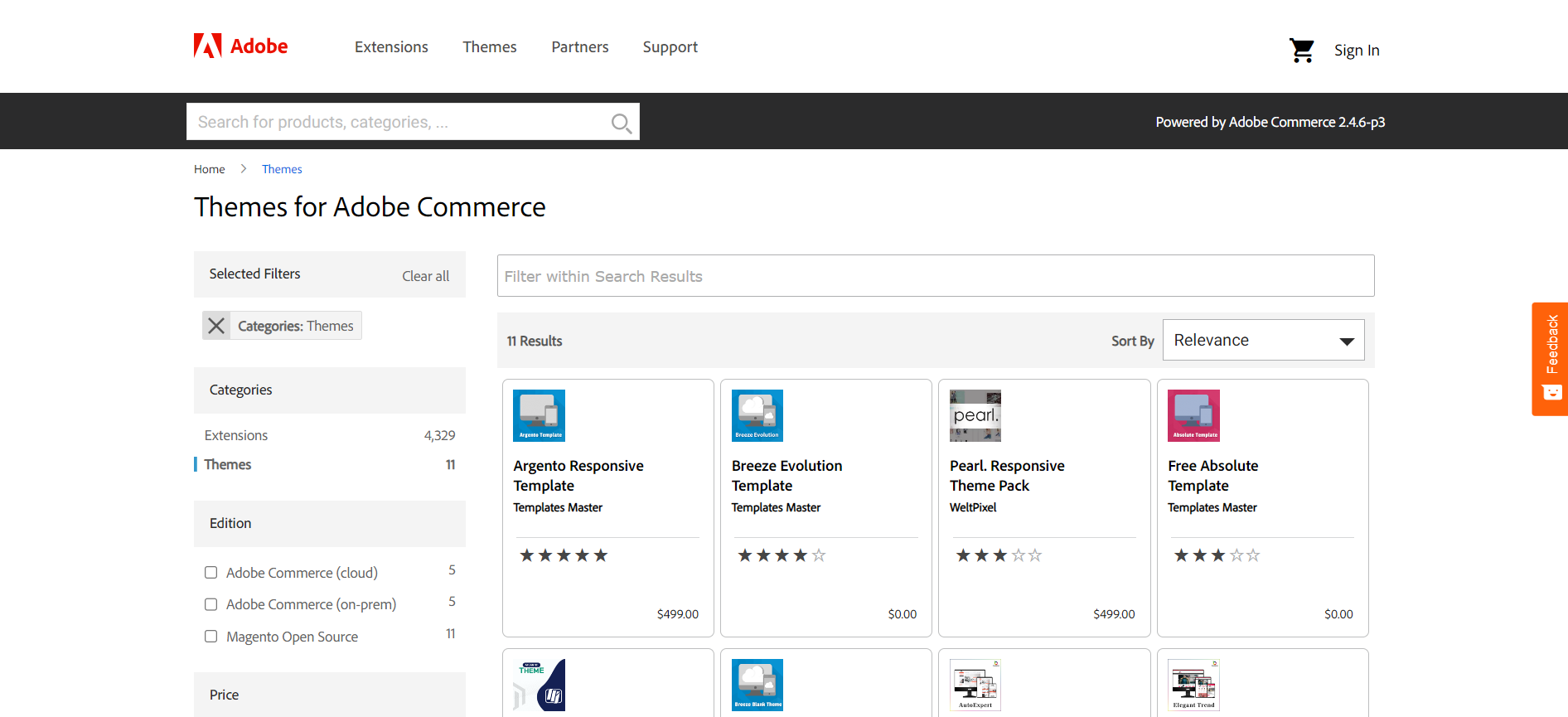
Compared to Adobe Commerce(ex Magento), Webnode stands out with its wide range of highly customizable templates suitable for various website types, not just ecommerce. It offers creative freedom in design, appealing to a diverse user base. While Webnode doesn’t have a premium template marketplace like Adobe Commerce(ex Magento), it has 3-rd party theme shops that allow you to get more sophisticated design choices.
Get a head start on website creation with AI
Create a custom website tailored to your business needs 10X faster with 10Web AI Website Builder!
Ease of use
Ease of useReflects the platform’s overall user-friendliness.Score
Components:
- Learning curve (40%): Quickness and ease of getting started.
- Interface design (30%): Simplicity and intuitiveness of layout.
- User guidance (20%): Quality of tutorials and support.
- Flexibility (10%): Adaptability to various user skills.
 5.4
5.4
 8.0
8.0
🏆 Winner: Webnode
. Scoring an impressive 8.0, Webnode is praised for its user-friendly interface and straightforward website building process, making it a great choice for beginners. Adobe Commerce(ex Magento), with a score of 5.4, offers a highly customizable platform but with a steeper learning curve, especially for those without technical expertise. If ease of use is a priority, Webnode is the clear winner in this category.
Learning Resources
🏆 Winner: Adobe Commerce(ex Magento)
. Both platforms offer solid learning resources, but Adobe Commerce(ex Magento) goes a step further with its comprehensive array of learning resources, including videos, tutorials, and instructor-led courses, making it easier for users to learn and adapt.
For ecommerce
EcommerceMeasures the platform’s effectiveness in supporting online business activities.Score Components:
- Ecommerce themes and templates (20%): Variety and design of templates.
- Product management (25%): Ease of managing and organizing products.
- Payment options (25%): Variety and convenience of payment methods.
- Ecommerce features (20%): Features for managing an ecommerce store.
- Integration (10%): Compatibility with external e-commerce tools and services.
 9.4
9.4
 6.3
6.3
Adobe Commerce (ex Magento) is a robust ecommerce platform suitable for both B2B and B2C businesses. It offers AI-driven personalization, supports multiple brands and markets, and ensures scalability with cloud-native solutions. On the other hand, Webnode is a more beginner-friendly platform, offering basic ecommerce features and a simple drag-and-drop interface.

|

|
|
|---|---|---|
|
Ecommerce themes and templates |
7.5 |
6.5 |
|
Product page customization |
9.0 |
7.0 |
|
Payment processing and commissions |
7.8 |
6.8 |
|
POS capabilities |
7.0 |
4.0 |
|
Payment gateways |
8.5 |
7.0 |
|
Product numbers |
7.5 |
5.5 |
|
Additional ecommerce features |
8.0 |
6.0 |
Adobe Commerce ecommerce features:
- Product and Inventory Management
- Order Management
- Customer Management
- Marketing and Promotions
- Payment Processing
- Multi-Channel Commerce
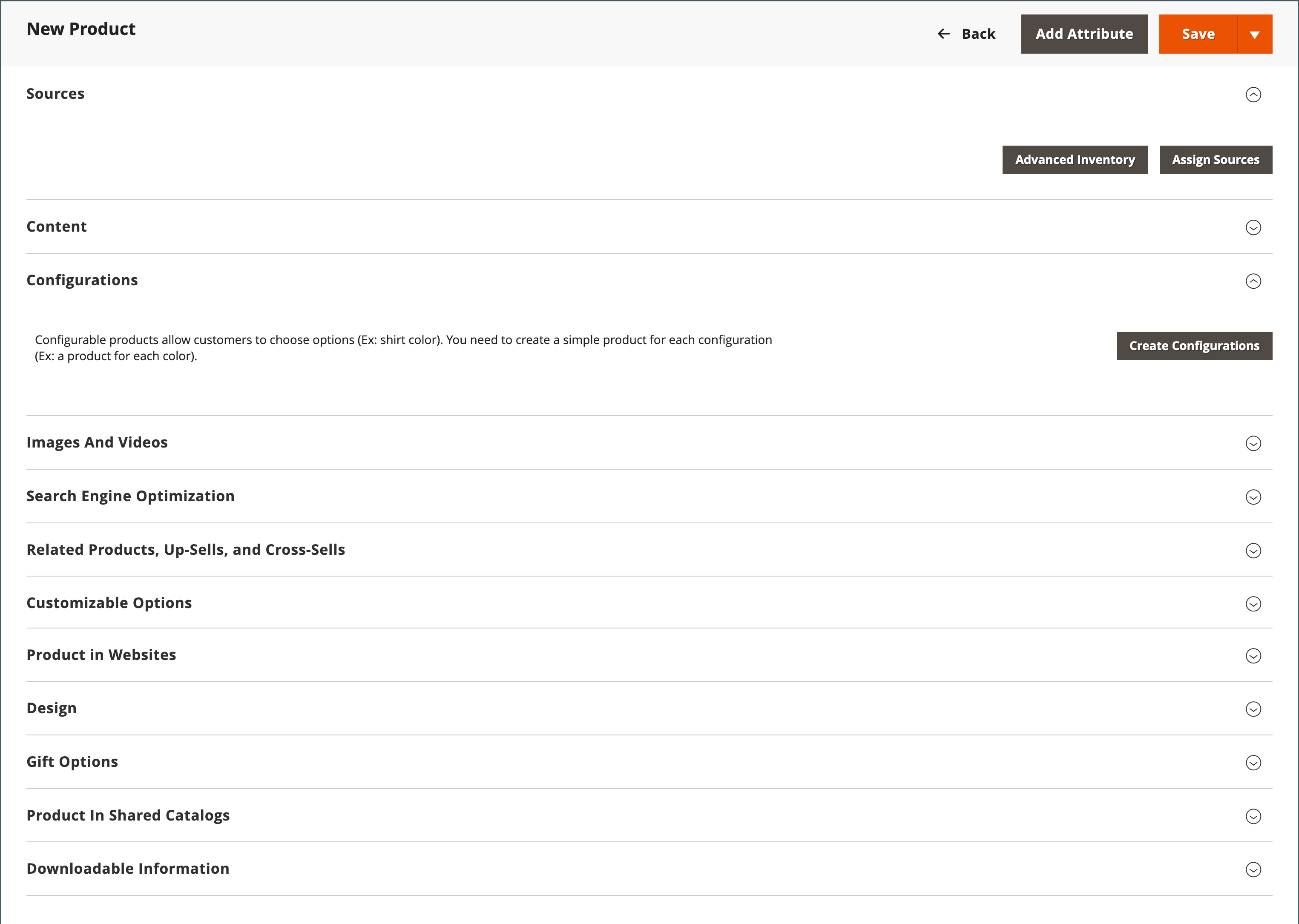
Webnode ecommerce features:
- Shipping options
- Payment gateway integrations
- Order management
- Coupons and discounts
Ecommerce themes & templates
Adobe Commerce offers a comprehensive ecosystem for ecommerce themes and templates, enabling businesses to customize their online stores to meet specific branding and functionality requirements. Webnode, on the other hand, offers ecommerce-specific templates designed for creating online stores, though the exact number of templates available may vary over time.
Product page customization
Adobe Commerce offers extensive customization options for product pages, enabling businesses to enhance the user experience and tailor product displays to their specific needs. This includes customizing layouts, product attributes, images and media, dynamic content like related products and reviews, and custom product options such as configurable and bundled products. Webnode also provides users with extensive customization options for product pages, allowing for the creation of visually appealing and informative displays.
Payment processing
Adobe Commerce offers integrated payment solutions and commission management for seamless online transactions, alongside POS integration for omnichannel retail experiences. It supports a wide array of payment gateways, ensuring flexible and secure payment options for customers. Webnode supports various payment gateways, including popular options like PayPal and Stripe, for online transactions. While Webnode itself doesn’t charge commissions on transactions, payment gateways may have their own fee structures. Webnode primarily focuses on facilitating online transactions and doesn’t provide native POS capabilities, although integration with third-party POS solutions may be possible.
Website Editors
Website EditorsEvaluates the platforms’ website building and editing capabilities.Score Components:
- Customization tools (40%): Range and power of editing features.
- Editor usability (30%): User experience within the editor.
- Design flexibility (20%): Freedom in layout and design changes.
- Update and maintenance ease (10%): Simplicity of updating and maintaining the site.
 7.8
7.8
 7.3
7.3
🏆
Winner: Adobe Commerce(ex Magento)
. Adobe Commerce(ex Magento), with a score of 7.8, offers a user-friendly website editor with its Page Builder tool, designed for ease of use through drag-and-drop capabilities, allowing for simple management and customization of eCommerce sites without extensive developer involvement. It provides a flexible and intuitive platform for users to effortlessly design, update, and maintain their online stores, supported by a variety of design options and themes for tailored branding and promotional activities.
Webnode’s editor, scoring 7.3, features a user-friendly drag-and-drop interface with customizable templates, enabling users to easily create professional-looking websites without coding skills. The editor offers responsive design capabilities and multilingual support, catering to diverse audiences across different devices and languages. Built-in features such as SEO tools, e-commerce functionality, and analytics integration empower users to optimize their websites for search engines, sell products online, and track performance metrics effectively.
Mobile editor/app
 0
0
 5.5
5.5

🏆
Winner: Webnode
. Both Adobe Commerce (ex Magento) and Webnode have limited mobile editing capabilities. Adobe Commerce does not offer a dedicated mobile app for website editing, which can be a significant drawback for users who need to make quick changes on the go.
On the other hand, Webnode allows users to edit their website using the mobile browser version of the editor. While this comes with certain limitations, it still provides a level of convenience for users who need to make quick updates or changes to their website from their mobile device. Therefore, despite its limitations, Webnode comes out on top in this category due to its mobile editing capabilities.
Product testing options
Product Testing OptionsAssesses the options for trying out platform features before commitment.Score Components:
- Trial quality (40%): Extent and usefulness of the trial or free version.
- Feature accessibility (30%): How many features are available to test.
- Trial duration (20%): Length of the trial period.
- Ease of transition (10%): Smoothness of moving from trial to paid plans.
 3.9
3.9
 5.3
5.3
Overall Result
:
Webnode Wins
. Webnode scores 5.3, slightly higher than Adobe Commerce(ex Magento) which scores 3.9. Webnode offers a free plan and a 15-day money-back guarantee, providing users with more flexibility to test the platform. Adobe Commerce(ex Magento), on the other hand, does not offer a free or trial version, but it is possible to test premium features by requesting a demo version.

|

|
|
|---|---|---|
|
Free Plan |
No |
Yes |
|
Trial Duration |
No | No |
|
Testing Premium Features |
By requesting a demo version |
Some features can be tested with the free plan |
|
Money Back Guarantee |
No |
15-day money back guarantee |
Price
PriceLooks at the cost-effectiveness and value for money of each platform.Score Components:
- Plan value (40%): What each pricing tier offers.
- Transparency and clarity (30%): Clearness of pricing structures.
- Flexibility of plans (20%): Range of options to suit different budgets.
- Hidden costs (10%): Additional expenses not included in the plan.
 5.8
5.8
 7.7
7.7
Webnode offers a range of affordable plans, while Adobe Commerce (ex Magento) is more suited for larger businesses with its premium pricing strategy.

|

|
|
|---|---|---|
|
$0-$10 |
No offering at this amount. |
LIMITED ($5.50/month): Basic plan, 200 MB storage, attach domain, website statistics, up to 5 form fields, last 30 days backup. This plan allows to manage 1 website with unlimited number of pages. Value for price: 3.0 |
|
$10-$20 |
No offering at this amount. |
MINI ($10.00/month): All essentials for a simple website, 1 GB storage, 3 GB bandwidth, website statistics, 1 email account. This plan allows to manage 1 website with unlimited number of pages. Value for price: 4.5 |
|
$20-$30 |
No offering at this amount. |
STANDARD ($16.90/month): For starting an online store, 3 GB storage, 10 GB bandwidth, 20 email accounts, basic store features. This plan allows to manage 1 website with unlimited number of pages. Value for price: 6.0 |
|
$30-$40 |
No offering at this amount. |
PROFI ($26.50/month): Professional websites, 7 GB storage, unlimited bandwidth, 100 email accounts, full online store capabilities. This plan allows to manage 1 website with unlimited number of pages. Value for price: 7.5 |
|
$2000+ |
No offering at this amount. |
BUSINESS ($34.90/month): Comprehensive e-commerce, 15 GB storage, unlimited bandwidth, 1000 email accounts, advanced online store features. This plan allows to manage 1 website with unlimited number of pages. Value for Price: 8.5 |
location. As a result in rare cases the prices displayed here can differ from the ones you see on their
websites.
Hosting quality
Hosting
qualityExamines the reliability and performance of the hosting solutions.Score Components:
- Uptime (40%): Consistency and reliability of website availability.
- Speed (30%): Loading times and performance.
- Bandwidth and storage (20%): Sufficiency of resources provided.
- Data centers (10%): Quality and distribution of hosting infrastructure.
 8.1
8.1
 6.3
6.3
Winner: Adobe Commerce(ex Magento)
Adobe Commerce(ex Magento) offers robust and scalable eCommerce solutions with both self-hosted and cloud-hosted options, providing flexibility and optimized performance. On the other hand, Webnode offers hosting with from 1GB to unlimited bandwidth and automated backups on higher plans. However, Webnode does not disclose its hosting type or the locations of its data centers. Adobe Commerce(ex Magento) has a higher hosting quality score than Webnode.

|

|
|
|---|---|---|
|
Do they offer hosting? |
Yes, Adobe Commerce offers robust and scalable eCommerce solutions with both self-hosted and cloud-hosted options, providing flexibility and optimized performance through technologies like Fastly Image Optimization. | Yes, with from 1GB to unlimited bandwidth and automated backups on higher plans |
|
Data Centers: |
Adobe Commerce on Cloud infrastructure Leverages Amazon Web Services (AWS), Specific data center details not publicly available | Webnode does not disclose the locations of its data centers |
|
Type of hosting: |
Self Hosting, Managed Hosting | Webnode does not disclose its hosting type |
|
Uptime: |
Uptime Guarantee for Adobe Managed hosting is provided | Uptime: 99.6% |
|
Uptime Guarantee: |
Yes | No |
Website Speed Optimization
Website Speed OptimizationEvaluates optimization of website loading timesScore Components:
- PageSpeed Score (30%): Google’s score indicating performance optimization.
- Loading Time (30%): The average time until a website is fully interactive.
- Mobile Optimization (15%): Optimization effectiveness for mobile devices.
- Resource Optimization (15%): Optimizing images, scripts, and other heavy resources.
- CDN Usage (10%): Use of CDN to enhance speed across geolocations.
 6.6
6.6
 6.1
6.1
🏆 Winner: Adobe Commerce (ex Magento)
Both Adobe Commerce (ex Magento) and Webnode have strategies in place for website speed optimization, but Adobe Commerce (ex Magento) takes the lead with a slightly higher score and a more comprehensive approach.

|

|
|
|---|---|---|
|
Focus |
CDN, Database optimization, Caching, Indexing |
Code Minification, Image Optimization, Caching |
|
Performance Tools |
Google Lighthouse, PageSpeed Insights |
Google PageSpeed Insights |
|
Key Strategies |
CDN, Database optimization, Caching, Indexing |
Code Minification, Image Optimization, Caching |
|
Load Times |
Varies widely, dependent on optimization |
Varies depending on optimization |
|
Page Speed Scores Range |
Scores vary; influenced by plugins, images |
Varies depending on optimization |
|
Core Web Vitals Improvement |
Emphasis on LCP, FID, CLS improvements |
No information provided |
Adobe Commerce (ex Magento) focuses on a variety of strategies for speed optimization, including CDN, database optimization, caching, and indexing. The platform emphasizes improvements in Core Web Vitals, particularly LCP, FID, and CLS. However, the load times and PageSpeed scores can vary widely, depending on the level of optimization and the influence of plugins and images.
On the other hand, Webnode’s strategies for speed optimization include code minification, image optimization, and caching. However, the platform does not provide any information on their Core Web Vitals improvements. The load times and PageSpeed scores can also vary, depending on the level of optimization.
Get a head start on website creation with AI
Create a custom website tailored to your business needs 10X faster with 10Web AI Website Builder!
Plugins and integrations
Plugins and integrationsMeasures the range and effectiveness of additional plugins and integrations.Score Components:
- Variety of options (40%): Range of available add-ons.
- Integration smoothness (30%): Ease of integrating plugins into the site.
- Quality of plugins (20%): Functionality and reliability of the options.
- Custom integration capabilities (10%): Support for custom or third-party integrations.
 9.1
9.1
 6.8
6.8
🏆 Winner: Adobe Commerce(ex Magento).
Adobe Commerce(ex Magento) scores 9.1, offering a vast array of extensions and plugins, estimated to be in the tens of thousands, covering aspects such as marketing, payment processing, shipping, content management, security, and optimization. Webnode, with a score of 6.8, supports a variety of plugins/integrations developed by Elfsight, aiming to enhance website functionality, improve user engagement, and drive conversions. However, the sheer number and variety of plugins offered by Adobe Commerce(ex Magento) give it a clear edge over Webnode.
Adobe Commerce(ex Magento) Applications
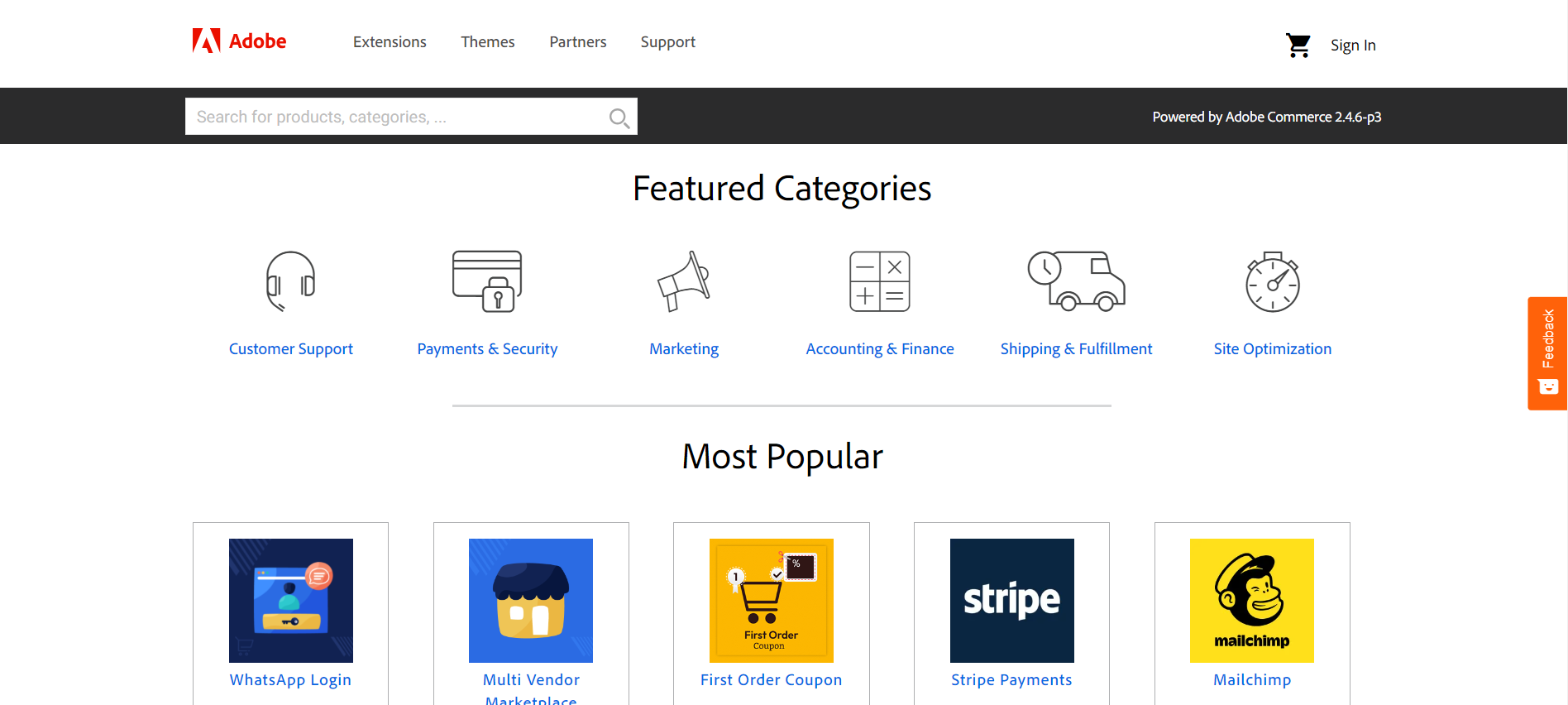

Marketing Features
Design FunctionalitiesRepresents how well each platform allows for creative design and customization of websites.Score Components:
- Template Variety (30%): Range and quality of design templates.
- Customization (30%): Flexibility and options for design alterations.
- User Interface (20%): Ease and intuitiveness of the design process.
- Responsiveness (10%): Adaptability to different devices and screen sizes.
- Innovation (10%): Unique design features and tools.
 8.1
8.1
 5.5
5.5
🏆
Overall Winner: Adobe Commerce(ex Magento)
. Adobe Commerce(ex Magento) offers more advanced and comprehensive marketing tools, especially in analytics and ad campaign management. Webnode, while simpler, still provides a decent range of marketing features.

|

|
|
|---|---|---|
|
SEO Tools |
|
|
|
Email Marketing |
|
|
|
Blogging |
Can be integrated with platforms like WordPress for content marketing purposes. |
|
|
Social Media Integration |
|
Yes, through third party integration |
|
Analytics and Reporting |
Adobe Commerce integrates with Google Analytics and other analytics tools, providing detailed insights into your ecommerce activities. |
Yes |
|
Ads and Promotions |
Advanced marketing tools for creating and managing promotions, coupons, and personalized content. |
Yes |
Customer Support
Customer supportEvaluates the quality and availability of support options.Score Components:
- Response time (40%): Speed of support responses.
- Support quality (30%): Effectiveness and helpfulness of the support.
- Availability (20%): Range of support channels (phone, chat, email).
- Resource richness (10%): Quality of self-help and educational materials.
 8.3
8.3
 5.3
5.3
🏆 Winner: Adobe Commerce(ex Magento)
. Comparing Adobe Commerce(ex Magento) vs Webnode, Adobe Commerce(ex Magento) stands out with its 24/7 customer support available through phone, email, and live chat. The platform also offers a comprehensive knowledge base, community forums, and extensive documentation, ensuring users have multiple resources for troubleshooting and assistance. For enterprise users, Adobe Commerce provides dedicated account management and access to a global network of experts, making it a robust choice for businesses needing reliable support.
Webnode, on the other hand, offers customer support in over 20 languages but is limited to email support available five days a week. While premium users receive priority phone support, the lack of general phone and live chat support, along with the weekday-only availability, can be a drawback for users needing immediate assistance. Webnode’s support is more suited for beginners and smaller websites, whereas Adobe Commerce excels in providing comprehensive support for larger, enterprise-level businesses.
Security
SecurityLooks at the platforms’ security measures and data protection.Score Components:
- Data protection (40%): Safeguards for user and customer data.
- SSL and encryption (30%): Implementation of secure connections.
- Compliance (20%): Adherence to industry security standards.
- Regular updates (10%): Frequency of security updates and patches.
 8.4
8.4
 7.7
7.7
🏆
Winner: Adobe Commerce(ex Magento)
. Adobe Commerce (formerly known as Magento) provides a more comprehensive security approach compared to Webnode. It offers advanced encryption and access control measures for private data storage and protection, ensuring that sensitive information such as customer data and payment details are kept safe from unauthorized access or breaches. In addition, Adobe Commerce provides regular security updates and patches to address any vulnerabilities, secure payment processing, and tools for monitoring and detecting any suspicious activity on the website.
Webnode, on the other hand, offers a variety of security measures including a Premium Site Security add-on with IP Filters, Form Protection, and Malware Scanning for users with a Premium Plan. All Webnode sites are automatically secured with HTTPS, ensuring safe browsing for visitors. However, compared to Adobe Commerce, Webnode’s security measures are less comprehensive and robust.
AI Capabilities
AI capabilitiesMeasures the effectiveness of AI-driven features and tools.Score Components:
- Automation efficiency (40%): Impact of AI on streamlining processes.
- Personalization (30%): AI-driven customization for users or customers.
- AI-Assisted design (20%): Role of AI in website design and functionality.
- Data analysis (10%): Use of AI in interpreting user data and analytics.
 7.7
7.7
 5.3
5.3

|

|
|
|---|---|---|
|
Personalized Design |
|
Webnode AI builder offers tailored design suggestions based on user inputs |
|
SEO Optimization |
AI-driven recommendations for better search engine visibility |
|
|
Customer Behavior Analysis |
Advanced analytics to understand customer preferences |
|
|
Sales Predictions |
AI-powered sales forecasting tools |
|
|
Inventory Management |
AI tools to assist in efficient inventory handling |
|
|
Content Generation |
AI assistance in creating and optimizing site content |
|
🏆 Winner: Adobe Commerce (ex Magento)
. Adobe Commerce’s AI capabilities are extensive and integrated across various aspects of eCommerce, enhancing customer service, security, and marketing. It excels in offering personalized product recommendations, visual search capabilities, inventory management, price optimization, content creation, and SEO optimization.
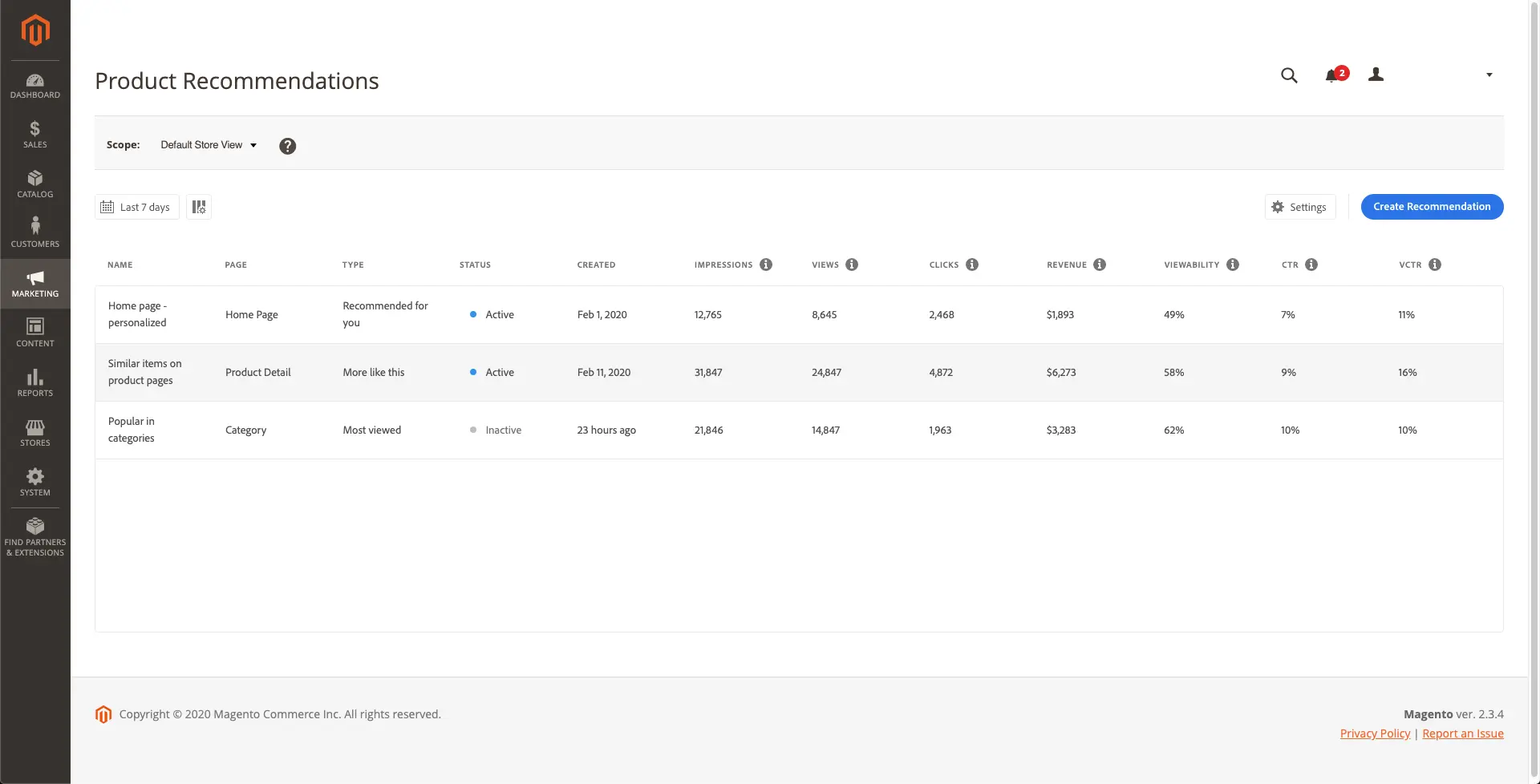
Webnode, with a score of 5.3, utilizes AI mainly in its website builder, designed to streamline the website creation process. However, it lacks AI capabilities in other areas such as SEO optimization, customer behavior analysis, sales predictions, inventory management, and content generation.
User Management
User ManagementAssesses the platforms’ capabilities in managing user roles, permissions, and accessibility.Score Components:
- Role Customization (40%): Flexibility in creating and defining user roles and
permissions. - Ease of Management (30%): User interface and tools for managing users.
- Access Control (20%): Effectiveness of access control measures for different user
levels. - Scalability (10%): Ability to manage a growing number of users efficiently.
 8.0
8.0
 6.9
6.9
🏆 Winner: Adobe Commerce (ex Magento)
. Both Adobe Commerce (ex Magento) and Webnode allow multiple users to manage and edit a website, but Adobe Commerce (ex Magento) offers more flexibility and control over user roles and permissions.
- Adobe Commerce (ex Magento) allows the number of users to be determined by user licenses, which can be purchased as needed. Roles and permissions are managed within the available licenses, ensuring data security and efficient workflow.
- Webnode’s number of users varies depending on the subscription plan. The free version provides limited user access, while premium plans offer more flexibility, including the ability to add multiple users with different roles and permissions.
Adobe Commerce (ex Magento) User Roles and Access Levels:
| Role | Description | Access Highlights |
|---|---|---|
| Administrator | Has full permissions to all aspects of Adobe Commerce, including global settings and data. | Full access to all settings, data, and functionalities within Adobe Commerce. Can manage other users’ roles and permissions. |
| Store Administrator | Responsible for the day-to-day management of the store, including products, orders, and customer service. | Access to manage products, process orders, and handle customer inquiries, but may have restricted access to sensitive global settings or data. |
| Design Team Member | Focuses on the aesthetic and user experience aspects of the store, working on content design and layout. | Access to content design tools and functionalities, but restricted from accessing customer, order information, and other sensitive areas. |
| Default User (B2B) | Has view-only access to company profile and credit information, and full access to activities related to sales and quotes. | Full access to sales and quotes activities; view-only for company profile and credit information. |
| Senior Buyer (B2B) | Engaged in purchasing, with access to all Sales and Quotes resources, and view-only permissions to the Company Profile, User and Teams, Payment Information, and Company Credit. | Comprehensive access to Sales and Quotes, with limited viewing rights for company’s financial and profile data. |
| Assistant Buyer (B2B) | Assists in purchasing activities, with permissions to place orders using Checkout with Quote, and to view orders, quotes, and company profile information. | Permission to execute orders and access relevant purchasing data; view-only access to company profile information. |
Webnode User Roles and Access Levels:
| Role | Description | Access Highlights |
|---|---|---|
| Website Owner | The individual or entity that owns the Webnode website. | Full access: can modify site structure, design, content, and manage user roles. |
| Administrator | Users with administrative privileges assigned by the website owner. | Nearly full access, including content management, and some settings adjustments. |
| Editor | Users tasked with creating, editing, and publishing content. | Access to add and edit content, blog posts, and pages, but cannot alter design. |
| Contributor | Users who can contribute content but cannot publish it. | Can draft content but need approval from an Editor or Administrator to publish. |
| Viewer/Visitor | Individuals who visit the website without any editing permissions. | Can view the public website and interact through comments or contact forms. |
| E-commerce Manager | Specifically for websites with an e-commerce component, managing products. | Can add, edit, and manage products, orders, and customer interactions. |
Additional Features

|

|
|
|---|---|---|
|
SSL Certificate |
|
|
|
Custom Domain |
|
|
|
Free Custom Domain Included |
|
|
|
International Domains |
|
|
|
Mobile Responsive |
|
|
|
Page Speed |
|
|
|
Website Builder Mobile App |
|
|
|
Convert a Website To An App |
|
|
|
Website Analytics |
|
|
|
Multilingual Sites |
|
|
|
Multiple Users |
|
|
User Feedback
Adobe Commerce (formerly Magento Commerce) receives high praise for its comprehensive ecommerce solutions, offering features like customer and order management, scalability, and customization options. Users appreciate its flexibility and ease of use, although some mention a learning curve due to its extensive features. Despite occasional drawbacks like slow speed or complexity, Adobe Commerce proves beneficial for businesses seeking robust ecommerce platforms, aiding in sales growth, customer management, and overall efficiency in managing online stores.
User feedback on Webnode highlights its ease of use, rapid website creation capabilities, and the wide range of templates available, making it a popular choice for individuals and businesses seeking an intuitive web development platform. While praised for its user-friendly interface and quick setup, including domain purchase and application, some users express a desire for more flexibility and customization options, especially in themes and e-commerce features. Comparatively, it falls short on advanced functionalities such as SEO tools and widgets offered by competitors like WordPress. Customer service experiences vary, with some users facing challenges in getting support for email hosting and analytics integration. Overall, Webnode is celebrated for its ability to accommodate users with little to no coding knowledge, offering an accessible solution for creating professional websites, though it may not fully meet the needs of those requiring more complex site features or dedicated customer support.
The making of this blog
We followed a clear, step-by-step process to write and research this article.
FAQ
Which platform is better for large ecommerce operations, Adobe Commerce (ex Magento) or Webnode?
Can I build a simple website easily with Webnode or Adobe Commerce (ex Magento)?
How do Adobe Commerce (ex Magento) and Webnode compare in terms of design flexibility?
Which platform offers better customer support, Adobe Commerce (ex Magento) or Webnode?
Are there any free plans or trials available for Adobe Commerce (ex Magento) or Webnode?
Which platform is more user-friendly for beginners?
How do the platforms compare in terms of hosting quality and website speed optimization?
Can I manage multiple users and roles on both platforms?










